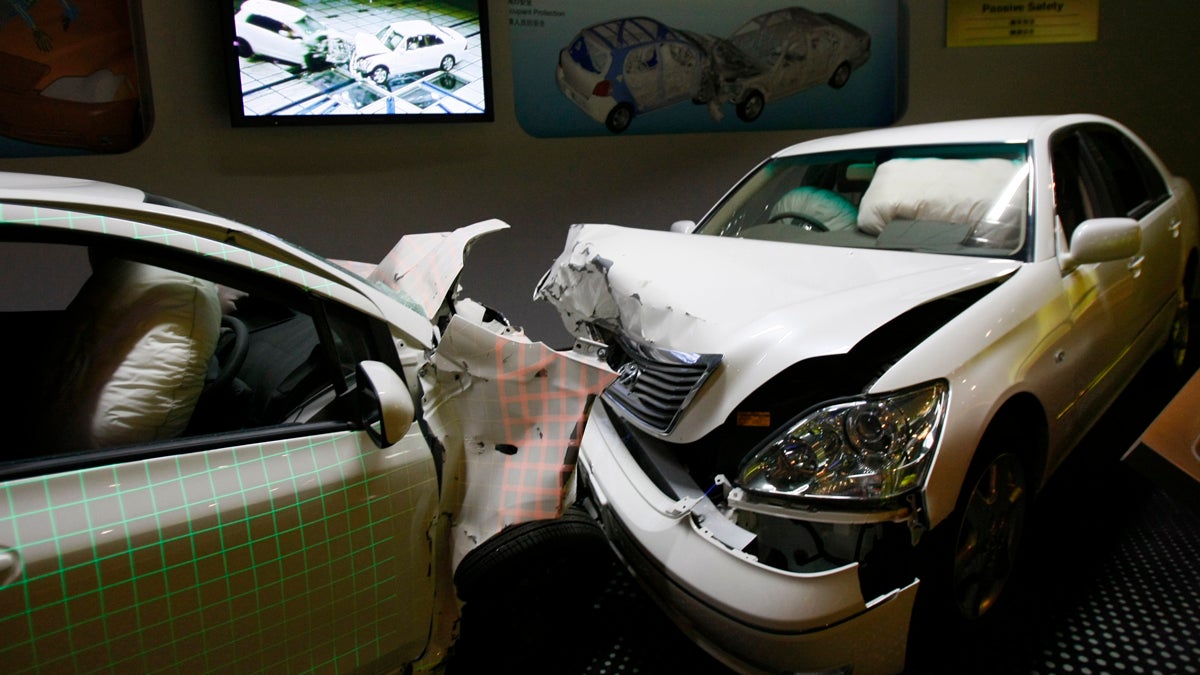NJ considers restricting access to ‘black boxes’ in vehicles

Toyota has for years blocked access to data stored in devices similar to airline 'black boxes' that could explain crashes blamed on sudden unintended acceleration, according to an Associated Press review of lawsuits nationwide and interviews with auto crash experts. (Shuji Kajiyama/AP Photo)
New Jersey lawmakers are considering legislation that would regulate who can access information collected by automobile event data recorders.
Unlike a plane’s black box, these recorders are on a loop, only storing the final few seconds before a crash. They monitor a vehicle’s speed, braking, acceleration, and other factors including seat belt use.
As these devices get more high-tech, including GPS capabilities, there’s growing concern over privacy rights.
“Right now, it is kind of the Wild West as to what information is being recorded and who might be accessing it,” said Assemblyman Paul Moriarty, D-Gloucester, bill sponsor.
“I think that we need to take some safeguards to protect our privacy and to affirm that the information contained inside these cars belongs to the owner of the car,” he said.
Moriarty’s bill would require law enforcement authorties to obtain a warrant before investigating the black box following a crash. In civil cases, a judge would also need to first approve its use. The measure makes tampering with the device after an accident involving injury or death illegal for a period of two years, with a potential $5,000 penalty.
The measure was unanimously approved by an Assembly committee, and awaits further action. Groups including AAA and the American Civil Liberties Union of New Jersey back the measure.
“Your data belongs to you, and nobody else,” says Ari Rosemarin, public policy director for ACLU-NJ.
Roughly a dozen states have similar laws. A federal bill on the issue is pending in Congress.
WHYY is your source for fact-based, in-depth journalism and information. As a nonprofit organization, we rely on financial support from readers like you. Please give today.




